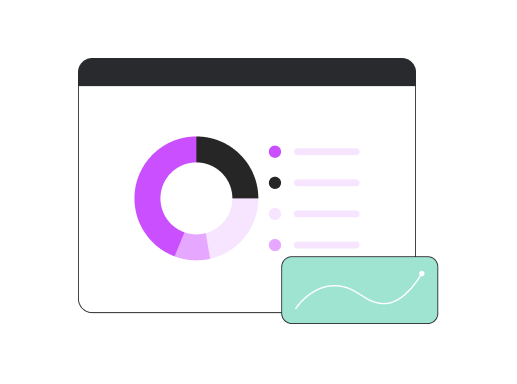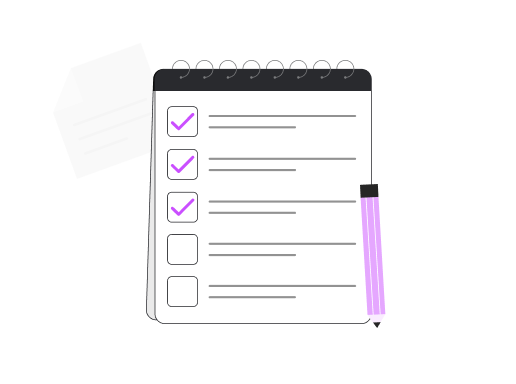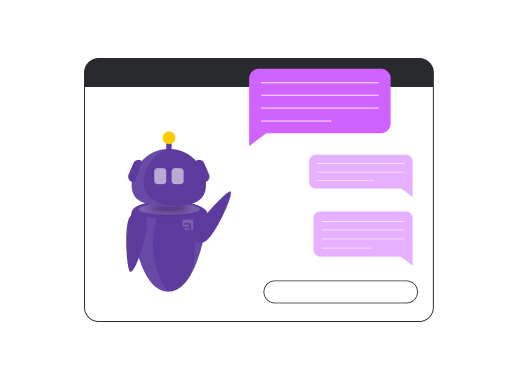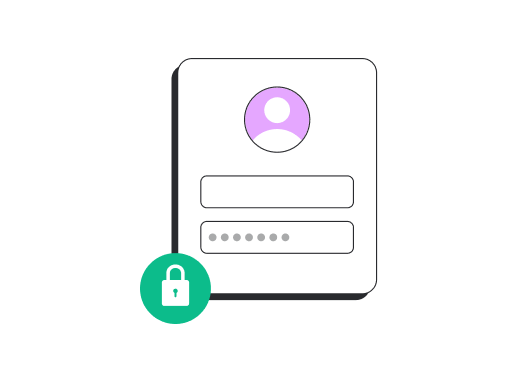AI Knowledge Management with Axero Copilot
Imagine the time you could save if you could interact with an AI search tool that has access to your organization’s intranet?




Transform Knowledge Management with Axero Copilot
Gone are the days of endlessly rummaging through files for answers. Meet Axero Copilot, our award-winning innovation, ready to change the game. Think of Axero Copilot as your AI-enhanced colleague, transforming the way you interact with enterprise knowledge.
It’s all about making your life easier and your work more efficient in a way that feels natural and user-friendly. With Axero Copilot, your intranet becomes more than just a repository—it becomes a conversation.
Your New and Improved Knowledge Management Platform
Axero Copilot isn’t just another tool; it’s a game-changer for your knowledge management strategy. Designed to integrate seamlessly into your workflow, Axero Copilot brings all the benefits of AI knowledge management to life:
- Personalized user experiences
- Enhanced learning and development
- Improved productivity
- Secure content utilization
Imagine having an assistant who understands and anticipates your organizational needs, providing the right information at the right time. Axero Copilot does exactly that. It’s about making your knowledge management processes smarter, not harder.
We understand that seeing is believing. That’s why we invite you to experience Axero Copilot firsthand. No hard sell, just an opportunity to see how Axero Copilot can elevate your knowledge management. Book a demo with us and see how AI can empower your organization’s knowledge journey.
Let’s navigate the future of knowledge management together – efficiently, securely, and intelligently.

See how Axero Copilot works
Learn how Axero Copilot works from this short video
What is AI Knowledge Management?
AI Knowledge Management is the process of using artificial intelligence to enhance the handling and utility of knowledge in organizations. It’s about leveraging AI to gather, organize, and analyze large volumes of data more efficiently, turning them into accessible and actionable knowledge.
This technology automates key processes like content updates and searching, delivers accurate and personalized recommendations, and aids in informed decision-making.
AI Knowledge Management Systems vs Traditional Knowledge Management
AI knowledge management systems differ from traditional knowledge management platforms primarily in their ability to learn, adapt, and automate.
A traditional knowledge base is like a library. It stores and manages information, but it’s mostly static. Users need to know what they are looking for, and the process of finding and utilizing information can be time-consuming and manual.
On the other hand, an AI knowledge management system acts more like a virtual assistant. They don’t just store information but understand and anticipate the needs of the user.
Knowledge management software backed by artificial intelligence uses algorithms to analyze patterns, offering relevant information and suggestions even before you ask for them. This leads to a more dynamic, interactive, and efficient experience
Where traditional knowledge management systems might struggle with the sheer volume and complexity of a company’s data, artificial intelligence thrives. Using advanced natural language processing, knowledge management powered by artificial intelligence can continuously learn from interactions, improving accuracy and usefulness over time.
This results in a more streamlined knowledge flow, better decision-making support, and a generally more responsive and adaptive knowledge management platform.



How does Axero Copilot help?
It is the colleague who knows everything there is to know about your organization and can point you to the exact spot in the documentation you need to answer your question, enhancing internal communications and knowledge distribution for everyone. However, it is exceptionally impactful in sectors where organizations heavily depend on policies, processes, and informational materials. Axero Copilot can ingest, comprehend, and stay updated on such content, surpassing human capabilities.
Interested in learning more about how Axero Copilot can empower your people with AI?
The benefits of an AI Knowledge Management System
01 Efficient Information Search
AI-powered knowledge management learns and evolves with each interaction, continually refining its ability to predict and present pertinent information. With the help of artificial intelligence, you can quickly analyze vast databases to streamline the knowledge management process, especially in data-rich environments.

02 Enhanced Learning and Development
AI-powered knowledge management learns and evolves with each interaction, continually refining its ability to predict and present pertinent information. With the help of artificial intelligence, you can quickly analyze vast databases to streamline the knowledge management process, especially in data-rich environments.

03 Improved Productivity and Performance
AI-powered knowledge management learns and evolves with each interaction, continually refining its ability to predict and present pertinent information. With the help of artificial intelligence, you can quickly analyze vast databases to streamline the knowledge management process, especially in data-rich environments.

04 Personalized User Experience
AI-powered knowledge management learns and evolves with each interaction, continually refining its ability to predict and present pertinent information. With the help of artificial intelligence, you can quickly analyze vast databases to streamline the knowledge management process, especially in data-rich environments.

05 Secure Utilization of Existing Content
AI-powered knowledge management learns and evolves with each interaction, continually refining its ability to predict and present pertinent information. With the help of artificial intelligence, you can quickly analyze vast databases to streamline the knowledge management process, especially in data-rich environments.

AI Knowledge Management FAQs
Axero Copilot delivers the power of ChatGPT to your team in a private environment, blending the technology of OpenAI and the content of your intranet.
- Integrated with your intranet to provide a more tailored and conversational search experience for your end user.
- Personalized and permissioned, ensuring sensitive company information is kept secure.
- Accesses text content of files to provide more detailed and accurate responses to user queries.
- Conversational UI enables users to engage as they would conversationally, including messaging back and forth to hone in on the right information.
- Dynamically adapts to your ever-changing policies, guidelines, and information in real-time. Employees can trust Copilot to provide the most current and compliant information.
- Provides employees with step-by-step instructions and links to relevant documentation providing more detailed and accurate instructions in less time.
AI is used in knowledge management to streamline information retrieval, enhance decision-making, and personalize user experiences. It automates data updates and integrates diverse information sources with your knowledge base, making up-to-date information easily accessible.
AI is not likely to replace knowledge workers, but rather augment their capabilities. It streamlines data processing and provides insights, allowing knowledge management professionals to focus on more complex, creative tasks. It acts as a supportive tool, enhancing productivity and decision-making, rather than replacing human expertise.
Knowledge-based AI models are systems that use structured information, like rules, concepts, and relationships, to make decisions and solve problems. They rely on a predefined knowledge base to understand and interpret data, enabling them to reason, learn, and provide insights. These models are particularly effective in domains where expert knowledge is key, enhancing decision-making with depth and precision.




